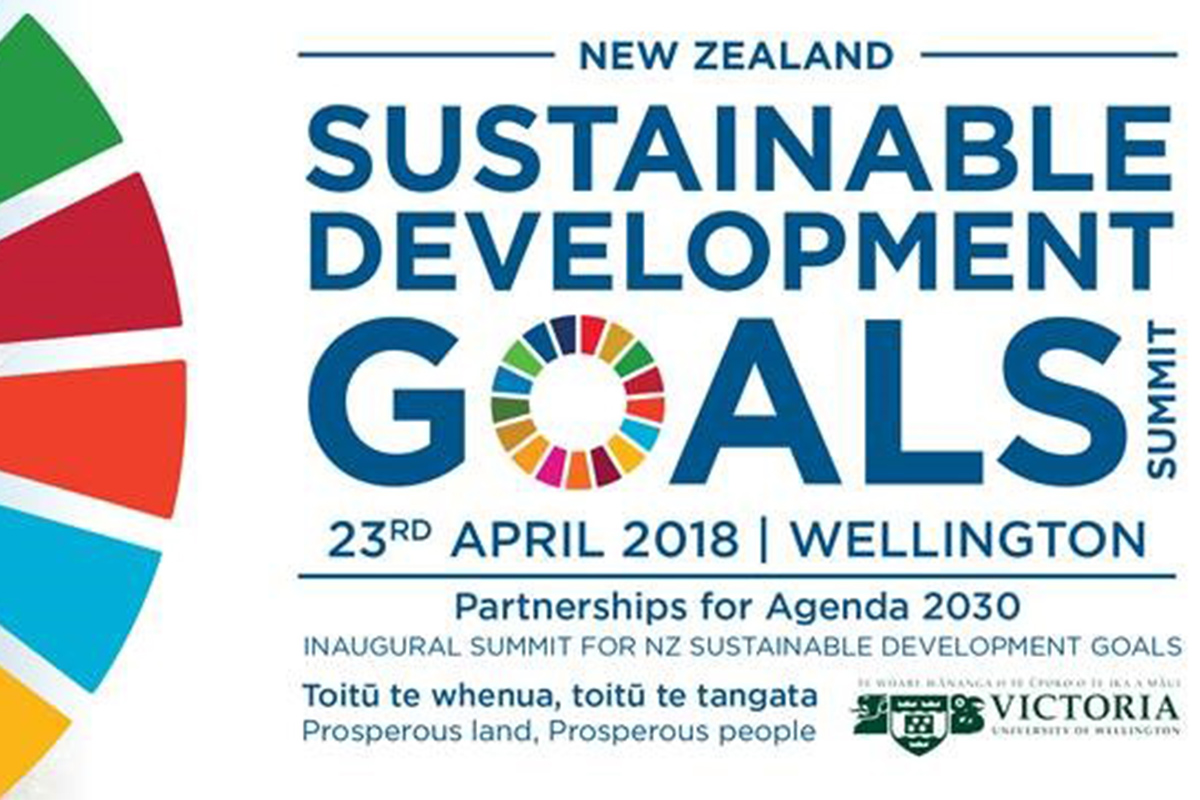During March we’ve been focused on the idea of the ‘environment’ and its effects on our metals-based industry. So far we’ve touched on our innovation, workplace & policy environment. And today… it’s all about the actual ‘environment’!
Our Executive Member, Auckland University of Technology Professor Emeritus Thomas Neitzert, has let us know about the ability to attend the New Zealand Sustainable Development Goals Summit. An event being held 23 April 2018 in Wellington.
It’s an opportunity that has come about as a result of his active role on the organising committee for the NZ summit on UN’s Sustainable Development Goals (SDG) also known globally as Agenda 2030.
What is the Summit all about?
The New Zealand government signed up to the SDG in 2015 along with 193 other countries, committing New Zealand to meet this Agenda by 2030.
The Summit’s hope is to bring New Zealand’s business, government, civil society and tertiary institutions together, to identify and work on solutions. With the objective to inform and excite leadership across different sectors by showcasing the best international and national projects helping to deliver SDG.
It will also look to galvanise action by encouraging cross-sectoral dialogue and collaborations to bring about concrete actions to deliver on the UN’s 17 goals.
Their goals encompass all aspects of social, economic and environmental sustainability. And, were created as a call to action to all sectors in society to work together to end poverty, protect the planet and ensure that all people enjoy peace and prosperity.
Many of the goals tackle issues important to New Zealanders and already have significant work underway. But it’s clear the goals require cross-sectoral collaborations and partnerships, as the issues tackled are too big for any one organisation or sector on its own.
Since 2015, there has been some uptake up of the goals in New Zealand – most recently the Labour/Greens Confidence and Supply Agreement incorporated them.
But compared to other countries, New Zealand is lagging behind.
HERA’s stance on environmental policy
We’ve put together a comprehensive policy position document aimed at informing decision makers and our new Government on what we believe is important to help New Zealand prosper – and part of that focus was on the low emission economy as well as green building and construction.
Our recommendations include:
Measuring environmental performance based on scientific data and life cycle analysis (LCA) principles;
Maintaining renewable and low emission technologies as a priority in our contestable R&D grant schemes; and
Developing strategies and programs, including incentives, that consider the macro-economic effects and net environmental impacts.
We feel forming a public policy position that improves our industry’s performance and sustainability credentials is a must. Which is why we certainly encourage our members to be a part of this summit so they can identify best practice and emerging improvement opportunities.
What is the value of the summit to your organisation?
To better inform attendees, the summit has international speakers lined up to show more clearly what best global practice looks like.
It’s been found that those organisations that have aligned their work to the goals have felt encouraged by the different sectors in society having a shared understanding of what it means to create sustainable prosperity and wellbeing.
Many leading businesses around the world are already integrating the goals into their planning, strategy and operations. Kiwi businesses using the goals say they like them because they are a useful way to see what areas of sustainable development they are directly contributing to, and how their initiatives relate to a larger vision for positive social change.
They also like them because they provide a common language to discuss projects and seek new partnerships with different organisations or sectors. It also highlights potential blind spots and risks for their business.
Being a part of the summit will give the opportunity to propose and develop ideas for debate and discussion at ‘action stations’, set up around the summit.
It will also provide a framework for your business to measure its impact on the environment and community, and define what success looks like when it comes to sustainability practices.
Be part of positive change!
The goals need to be interpreted and translated for a national and local NZ context and support a homegrown Agenda 2030.
These goals provide an opportunity for different sectors in society to align their purpose and actions, and provide leadership together.
Having our members involved and on the ground to strongly advocate for our industry’s overarching agendas and strategy would be a great step in the right direction to ensure our voice is heard and outcomes favourable.
Update shared by our Executive Member Professor Thomas Neitzert
